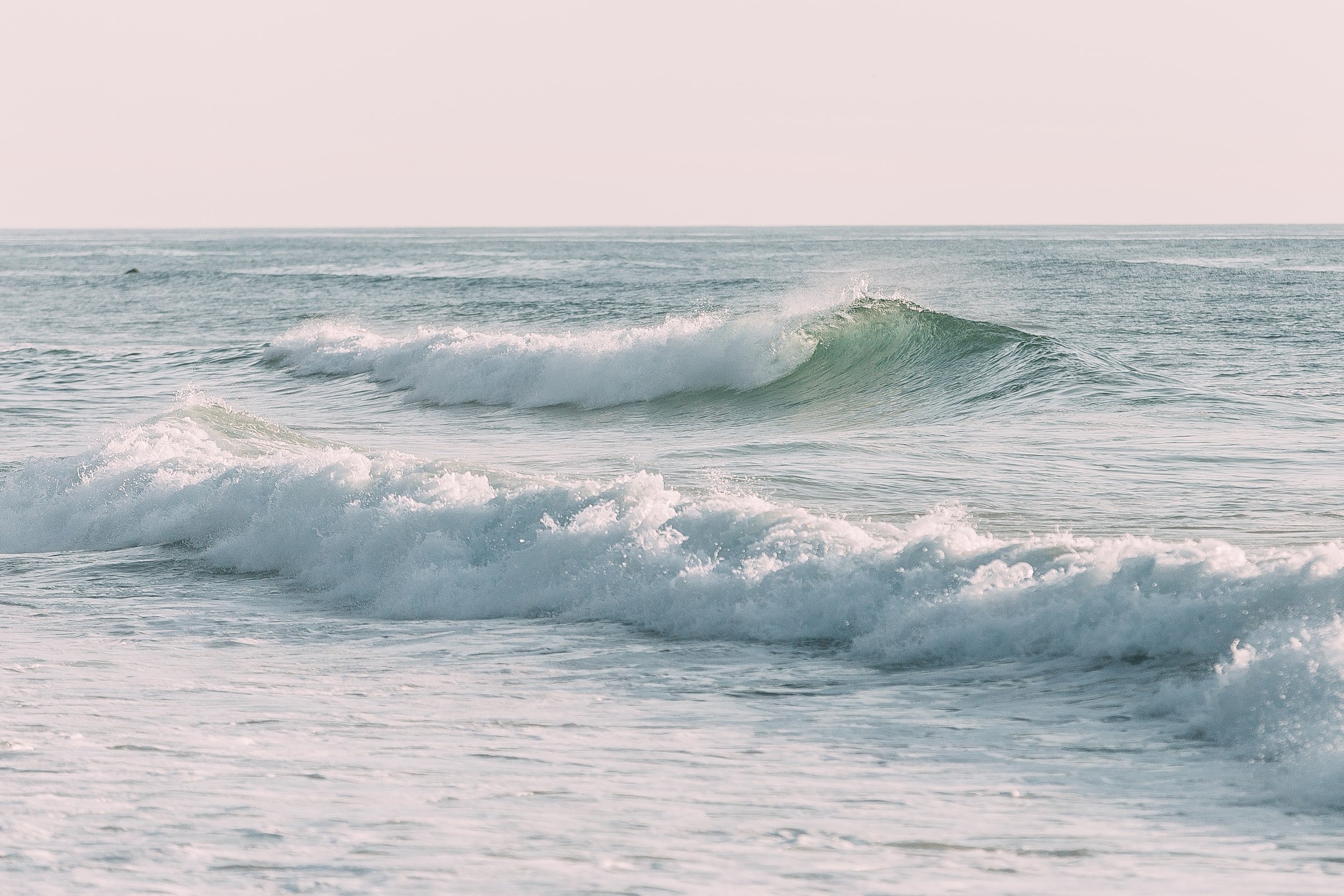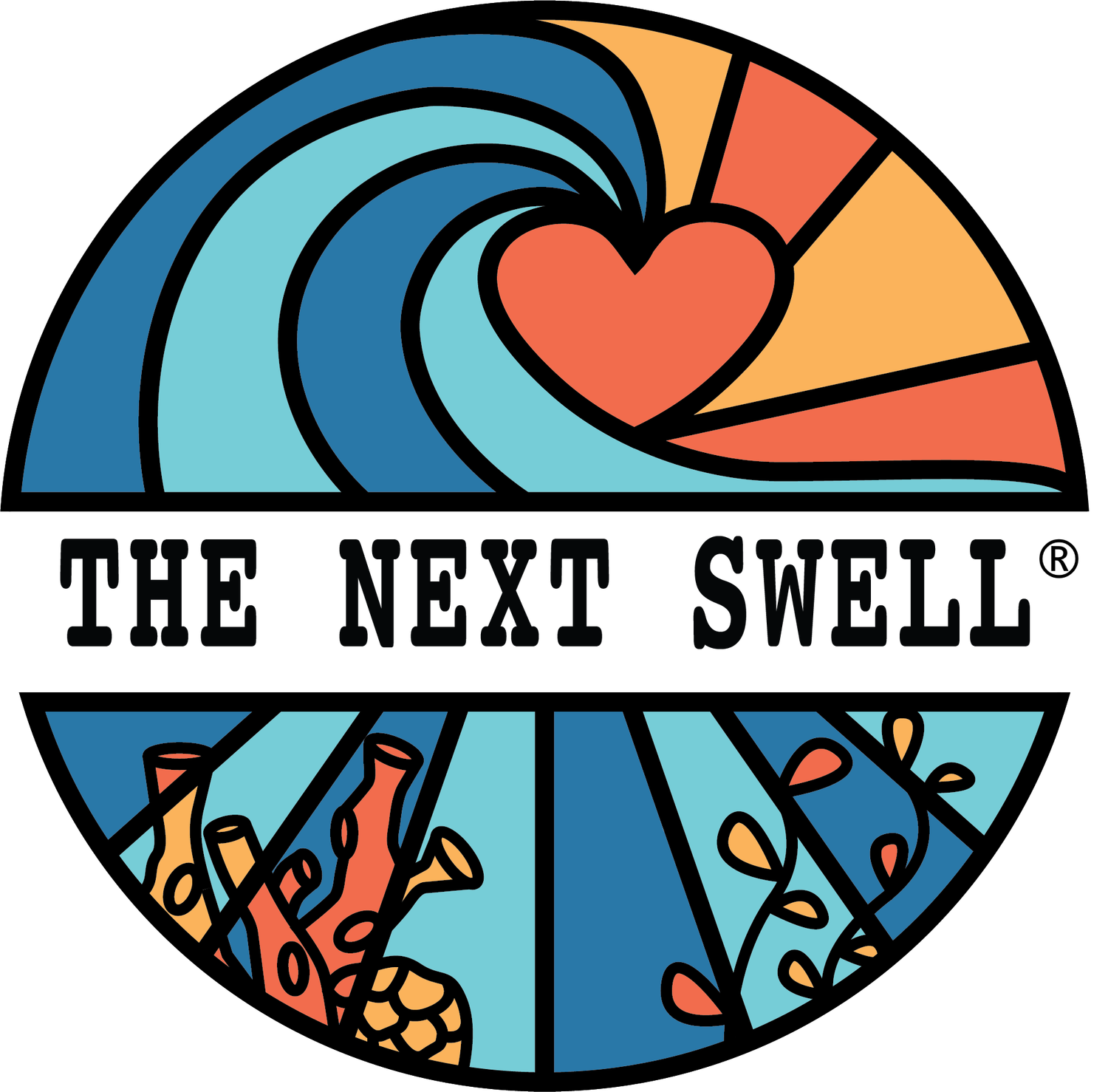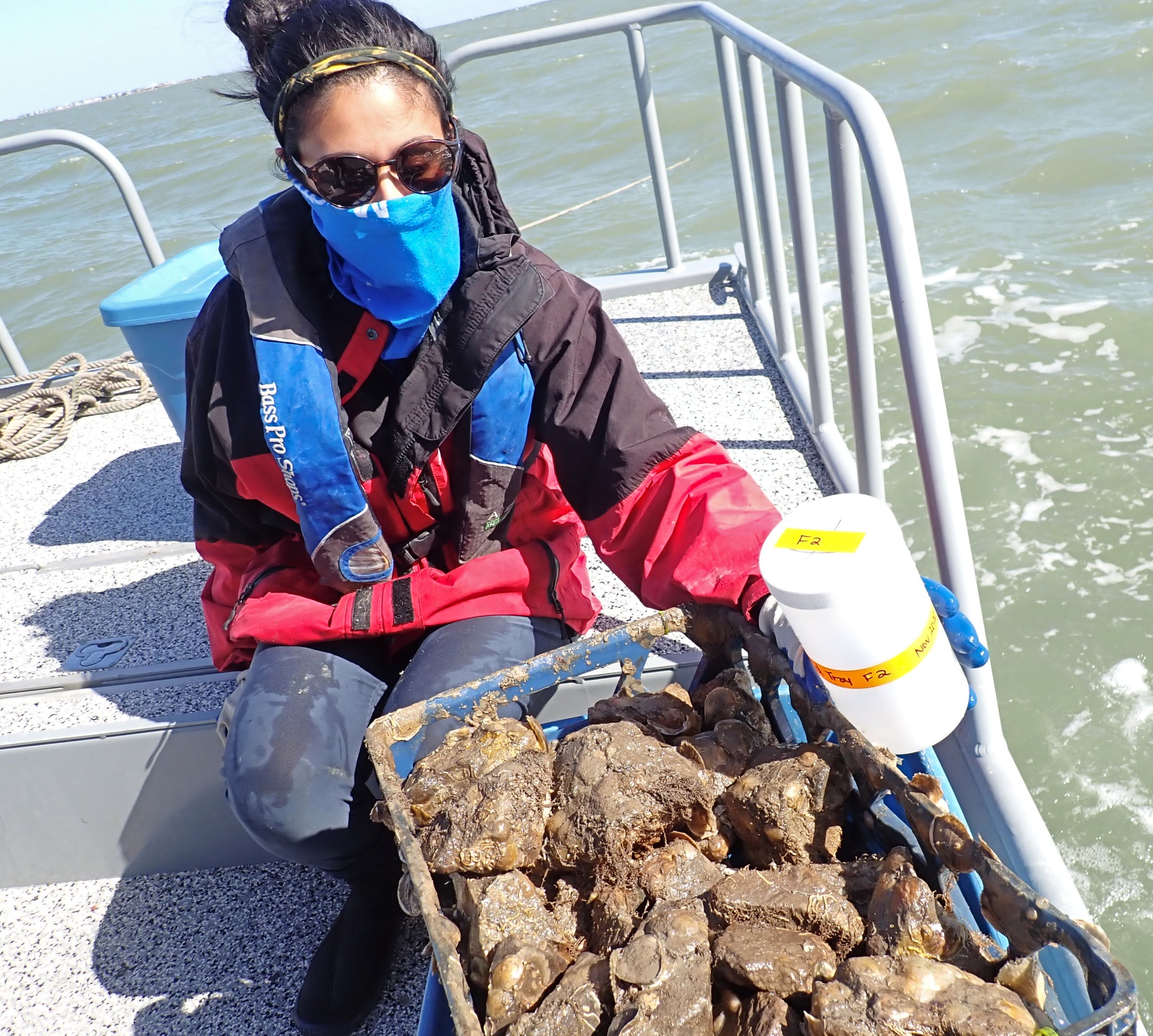
The Next Swell 2021 Scholarship Winners
Eileen - Graduate student at University of Washington’s School of Aquatic and Fishery Sciences
Eileen's research focuses on the recovery of endangered pinto abalone in Washington State. She is working with the Washington Department of Fish and Wildlife and Puget Sound Restoration Fund in an effort to discover why some of the restoration sites where they outplant juvenile abalone from the hatchery have a high success rate, and others are unsuccessful. Here she is deploying an array of oceanographic loggers at one of the abalone restoration sites in an effort to determine if small-scale differences in habitat and water conditions may impact where abalone are struggling and where they are thriving.
Monisha - Graduate student at Texas A&M-Corpus Christi’s Harte Institute for Gulf of Mexico Studies (Photo Credit: TAMUCC)
Monisha is currently pursuing a MSc in Coastal and Marine System Science at the Harte Institute, Texas A&M-Corpus Christi. Her research focuses on oyster reef restoration in Aransas Bay, Texas. She is currently researching how different styles of restored oyster reefs can provide ecosystem services, such as increasing fisheries and improving water quality. Refining oyster reef restoration techniques will aid us in both harvest and conservation goals. In the above photo, Monisha is sampling a tray of oysters to monitor the restored reefs over one year post-restoration!
Sam - Undergraduate student at University of North Carolina at Wilmington
Sam is currently working on an honors project involving the application of the risk allocation hypothesis to an estuarine minnow Fundulus heteroclitus that is common along the east coast of North America. He is looking at this minnow's behavioral response to various levels of predation by assessing its willingness to leave an artificial oyster reef habitat in order to forage. During the summer of 2020, he participated in Bigelow Laboratory for Ocean Sciences virtual Research Experience for Undergraduates (REU) program. He worked on determining the behavioral response of copepod Calanus finmarchicus to crude oil spills. Copepods are zooplankton that are essential to nearly every marine food web. This study showed that this Arctic and vertical migratory copepod cannot avoid the detrimental effects of crude oil, which shows the ever-present need for proper oil cleanup equipment, proper maintenance on machinery, and legislation to protect marine life.



